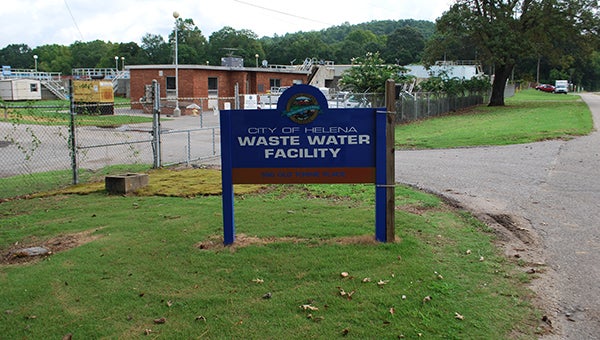Improvements coming to Helena’s waste water facility
Published 3:35 pm Monday, August 24, 2015

Helena’s waste water treatment facility will soon undergo mandatory process changes that will cost nearly $8 million. (Reporter Photo/Graham Brooks)
By GRAHAM BROOKS / Staff Writer
HELENA–The city of Helena will soon be getting some much needed and mandatory upgrades to the city’s waste water treatment facility.
Helena city officials were notified a few years ago by the Alabama Department of Environmental Management that the facility had to meet certain regulations in order to be in compliance.
Initial cost estimates for the project were close to $20 million and Helena Mayor Mark Hall, Helena Utility Managers and staff, along with Project Manager and Vice President of Garver Brian Shannon, worked together to reduce the total cost of the project to $8 million, saving the city $12 million.
A low bid for the project was accepted on Aug. 6 and awarded to Max Foote Construction Co., LLC. Construction is expected to begin at the end of September and last through February 2017.
Hall said that the facility will undergo necessary changes to meet regulations.
“The facility will undergo major process changes and bring in new technology to meet permit regulations,” said Hall. “We needed to do this and the processes will be more efficient and more environmentally friendly.”
Shannon provided a detailed summary of the improvements and construction that will take place over the next few years.
“These improvements include rehabilitation of the existing secondary clarifiers and replacement of the existing mechanisms, new tertiary filtration equipment, new chemical storage and feed facilities and new UV disinfection equipment,” read the statement.” The improvements at the plant will increase the effluent quality and help ensure that the discharge from the plant into Buck Creek and the Cahaba River Basin exceeds environmental regulations, thus protecting one of the most ecologically diverse river basins in Alabama.”
When speaking about the project overall, Hall wants to highlight the fact that so much money was saved for the city.
“Do we want to spend $8 million? No. Do we have to? Yes,” said Hall. “What I’m most proud of is working the total cost down from $20 million to $8 million,” said Hall.
“The project was funded through a low interest loan made available by ADEM’s Clean Water State Revolving Fund,” according to Shannon’s statement. “A portion of this project was funded through a green infrastructure grant rewarding utilities who use environmentally conscious processes and equipment.”
More Helena









